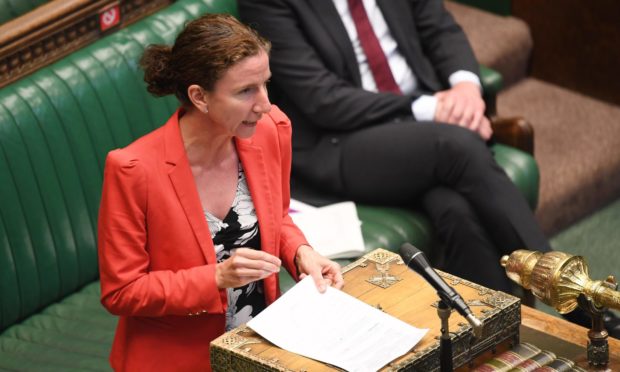Employees who are left unable to work due to fresh coronavirus restrictions will have their wages paid by the Treasury under a renewed furlough scheme, Chancellor Rishi Sunak has announced.
Under the scheme, set to start on November 1, firms that are legally required to close due to local or national restrictions will receive grants to pay staff two thirds of their salary up to a maximum of £2,100.
Businesses will only be eligible to claim the grant while they are subject to restrictions and employees must be off work for a minimum of seven consecutive days.
The announcement comes after pressure from devolved leaders, opposition MPs and unions who have been warning of further layoffs if new restrictions are imposed.
Mr Sunak, announcing the plan, said: “Throughout the crisis the driving force of our economic policy has not changed.
“I have always said that we will do whatever is necessary to protect jobs and livelihoods as the situation evolves.
“The expansion of the job support scheme will provide a safety net for businesses across the UK who are required to temporarily close their doors, giving them the right support at the right time.”
He added: “With all the other measures we’ve made, whether it’s changes to our welfare system, mortgage holidays, support for businesses, we’ve made sure that the most vulnerable in our society are the ones that have been protected the most and that’s something that we will continue to do.”
Employers will not be required to contribute towards wages under the plan, but will be asked to cover national insurance and pension contributions.
Devolved administrations
In addition to the new scheme, the devolved administrations will benefit from a £1.3bn increase to their guaranteed funding for 2020-21.
This means at least £7.2 billion for the Scottish Government in extra cash.
These measures will sit alongside the original job support scheme – which is designed to support businesses that are facing low demand over the winter months – and the £1,000 job retention bonus which encourages employers to keep staff on payroll.
A Treasury source said the expanded Jobs Support Scheme would cost “hundreds of millions” of pounds a month.
Winter economic plan
Shadow chancellor Anneliese Dodds criticised ministers, saying the delay in announcing a new scheme had caused anxiety for many.
She said: “The fact the Chancellor is having to tear up his winter economic plan before the autumn is out demonstrates the chaos and incompetence at the heart of government. His delay in delivering support has caused unnecessary anxiety and job losses.
“Even at this late stage, he still has no plan to support sectors that are currently unable to operate at full capacity.
“None of this was inevitable if the Chancellor had just taken his fingers out of ears and listened to the warnings from Labour and others.
“Businesses and families don’t have the luxury of going at Rishi Sunak’s pace when millions of jobs and livelihoods are on the line.”
‘Impending mass job losses’
The SNP’s Treasury spokeswoman, Alison Thewliss, added: “Any measures brought forward to help jobs and businesses are welcome, but it’s clear that the partial furlough plans announced by the Chancellor for areas affected by further restrictions don’t go far enough to address the impending mass job losses as a result of Tory cuts to national financial schemes in just a matter of weeks.
“The limited measures announced today will still leave many workers, businesses and self-employed people with no support at the worst possible time.”
Scottish Tory leader Douglas Ross welcomed the move, however, and called on the Scottish Government to come forward with additional schemes of support.
He said: ““The Scottish Conservatives have brought forward a jobs plan with bold proposals for a hardship fund to keep businesses afloat, job security councils to keep people in work, and long-term projects to rebuild Scotland stronger.
“I’m urging the first minister to finally give Scottish businesses the ambitious economic recovery plan they’re crying out for.”
The renewed furlough scheme will be reviewed in January; until November businesses that are asked to close can continue to use the current furlough scheme.



